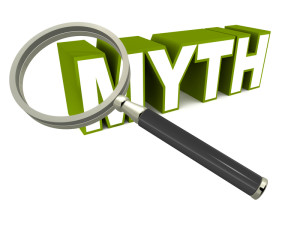Although stress is widely viewed as something to be avoided as much as possible, not all stress is harmful. Intermittent stress can motive you and focus your attention, improve your memory and mental and physical performance, and help you adapt. It can also nudge you to change your behavior for the better.
The “father of stress” himself, Hans Selye, said that the opposite of stress is death, so even he didn’t see all stress as bad.
Negative stress is referred to as distress in order to distinguish it from positive stress or eustress. Distress isn’t motivating, and it decreases performance instead of improving it. It can lead to anxiety, feelings of powerlessness, and even depression.
Situations that generate eustress:
- feel exciting rather than anxiety-producing
- seem to be within our coping abilities (we have a sense of agency or control)
- tend to be short-term
Situations that generate distress:
- feel unpleasant rather than exciting
- seem to be outside our coping abilities (we don’t have a sense of agency or control)
- can be either short- or long-term
Some situations, such as illness or the death of a close friend or family member, are likely to create some distress for nearly anyone. But not everyone reacts the same way to the same situations or events. That’s why stress scales that assign a value to potential stressors miss the mark.
Eustress = Excitement
In the 1980s I volunteered to take on a responsibility for a group I belonged to that, on the face of it, was an impossible task. I didn’t know what I was getting myself into initially, and I could have just walked away when I found out. Instead I saw it as a challenge and ended up doing the “impossible” for two full years. Most people I knew then thought I was crazy for subjecting myself to the pressure.
But I didn’t experience the pressure as distress; I experienced it as eustress. I spent many entire weekends, from Friday evening until after midnight on Sunday, doing the impossible and loved every minute of it. I always went back to my regular job on Monday morning extremely short of sleep but much more refreshed, energized, and ready to go than my co-workers who had relaxed all weekend.
Going back to “regular life” was one of the things that contributed to my experience of the weekend stress as positive: it was short-term. I didn’t live every day of my life like that. Another contributing fact was my belief—at least after the first instance—that I could succeed in producing the desired outcome. (So dopamine also played a role in pushing me to all those finish lines.)
Chronic or excessive stress can have harmful effects on the body, the brain, and interpersonal relationships. But not only do we respond differently to life events and situations than others might respond, we don’t always respond the same way every time. So we can’t just compile a list of things to avoid, and avoiding things isn’t the best life strategy, anyway.
Immunity Against Stress
It’s better to increase the ability to handle challenges than to hide out in the hope of never having to face them. Developing a reliable sense of personal agency—the feeling that you can take action to influence your well-being and the outcome of events—is one of the best defenses against distress. And you can’t develop a reliable sense of personal agency unless you are active and engaged in the world—intentionally and purposefully, that is.
In order to be intentional and purposeful, you have to know what you want. When you don’t know what you want, life often amounts to a lot of busywork, reactivity, and fending off the slings and arrows of outrageous fortune. Knowing what you want focuses your attention and your efforts on what’s important, so you’re less likely to get caught up in the everyday stressors that can add up to a big mess of distress.
There are various things you can do to protect against or cope with stressors, such as eating a healthy diet, getting enough sleep and exercise, and taking time to relax. But being clear about what you want (having direction) and developing a reliable sense of personal agency (knowing how much control you have or don’t have in a given situation) can actually help you develop immunity against the harmful, derailing effects of stress. It can even turn potential distress into eustress!



 These six beliefs are so pervasive they seem to be embedded in our culture. Most of them are meant to be motivational, but because they aren’t true, belief in these myths can have unintended consequences that harm rather than help. Ultimately, we need less external motivation and more straightforward education about how the brain and the mind actually work. Then we’ll be able to generate our own motivation—from inside.
These six beliefs are so pervasive they seem to be embedded in our culture. Most of them are meant to be motivational, but because they aren’t true, belief in these myths can have unintended consequences that harm rather than help. Ultimately, we need less external motivation and more straightforward education about how the brain and the mind actually work. Then we’ll be able to generate our own motivation—from inside. You probably won’t be surprised to learn that people who set low goals or no goals tend not to accomplish much. On the other hand, people who set goals not only get more done, they also tend to be happier and more satisfied with their lives. In addition, people who set and achieve challenging goals increase their self-confidence and self-esteem.
You probably won’t be surprised to learn that people who set low goals or no goals tend not to accomplish much. On the other hand, people who set goals not only get more done, they also tend to be happier and more satisfied with their lives. In addition, people who set and achieve challenging goals increase their self-confidence and self-esteem.